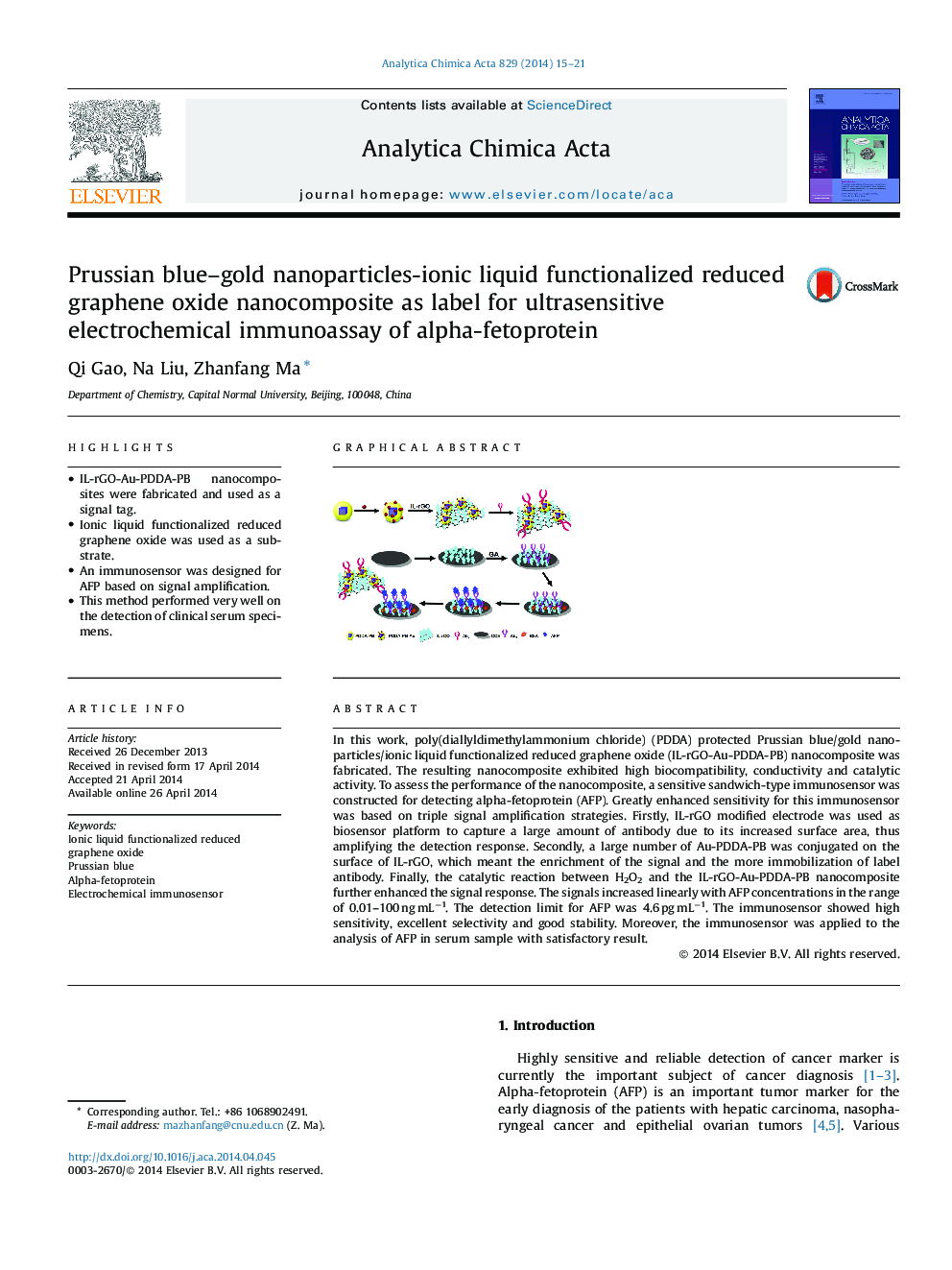| Article ID | Journal | Published Year | Pages | File Type |
|---|---|---|---|---|
| 1164638 | Analytica Chimica Acta | 2014 | 7 Pages |
•IL-rGO-Au-PDDA-PB nanocomposites were fabricated and used as a signal tag.•Ionic liquid functionalized reduced graphene oxide was used as a substrate.•An immunosensor was designed for AFP based on signal amplification.•This method performed very well on the detection of clinical serum specimens.
In this work, poly(diallyldimethylammonium chloride) (PDDA) protected Prussian blue/gold nanoparticles/ionic liquid functionalized reduced graphene oxide (IL-rGO-Au-PDDA-PB) nanocomposite was fabricated. The resulting nanocomposite exhibited high biocompatibility, conductivity and catalytic activity. To assess the performance of the nanocomposite, a sensitive sandwich-type immunosensor was constructed for detecting alpha-fetoprotein (AFP). Greatly enhanced sensitivity for this immunosensor was based on triple signal amplification strategies. Firstly, IL-rGO modified electrode was used as biosensor platform to capture a large amount of antibody due to its increased surface area, thus amplifying the detection response. Secondly, a large number of Au-PDDA-PB was conjugated on the surface of IL-rGO, which meant the enrichment of the signal and the more immobilization of label antibody. Finally, the catalytic reaction between H2O2 and the IL-rGO-Au-PDDA-PB nanocomposite further enhanced the signal response. The signals increased linearly with AFP concentrations in the range of 0.01–100 ng mL−1. The detection limit for AFP was 4.6 pg mL−1. The immunosensor showed high sensitivity, excellent selectivity and good stability. Moreover, the immunosensor was applied to the analysis of AFP in serum sample with satisfactory result.
Graphical abstractFigure optionsDownload full-size imageDownload as PowerPoint slide
